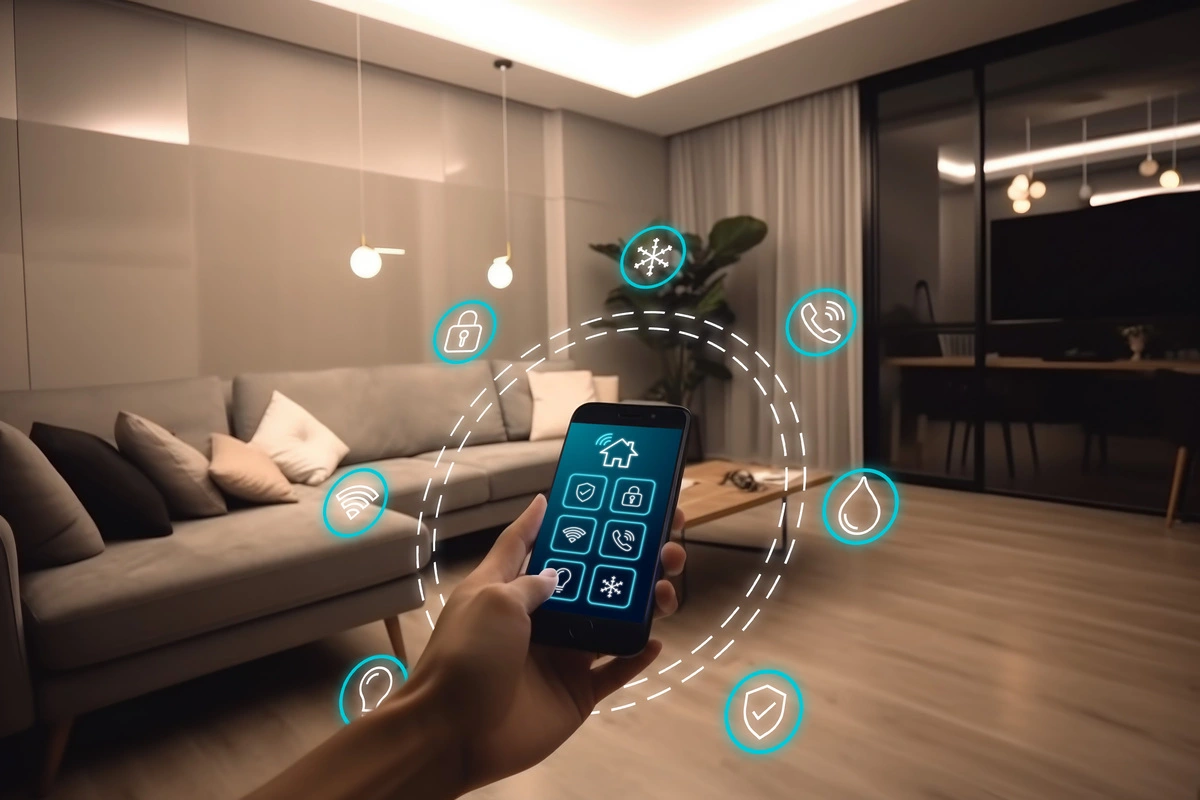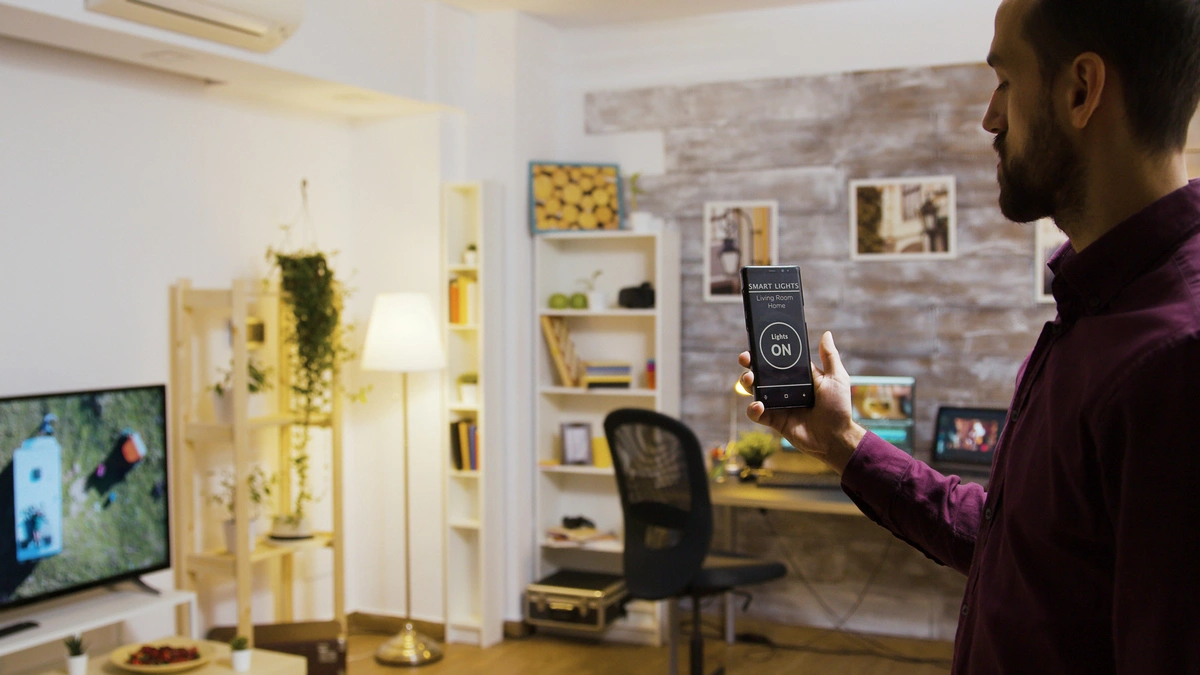Smart homes aren’t just a dream of the future; they’re now a real thing that’s changing the way we live. They claim to be the most convenient, efficient, and luxurious things ever. Nevertheless, smart home technology has both pros and cons, just like any big change.
Getting the big picture can be very helpful, whether you’re a homeowner looking to upgrade or a fan thinking about making the jump. Through this in-depth analysis, we’ll look at the wide range of pros and cons of having a smart home.
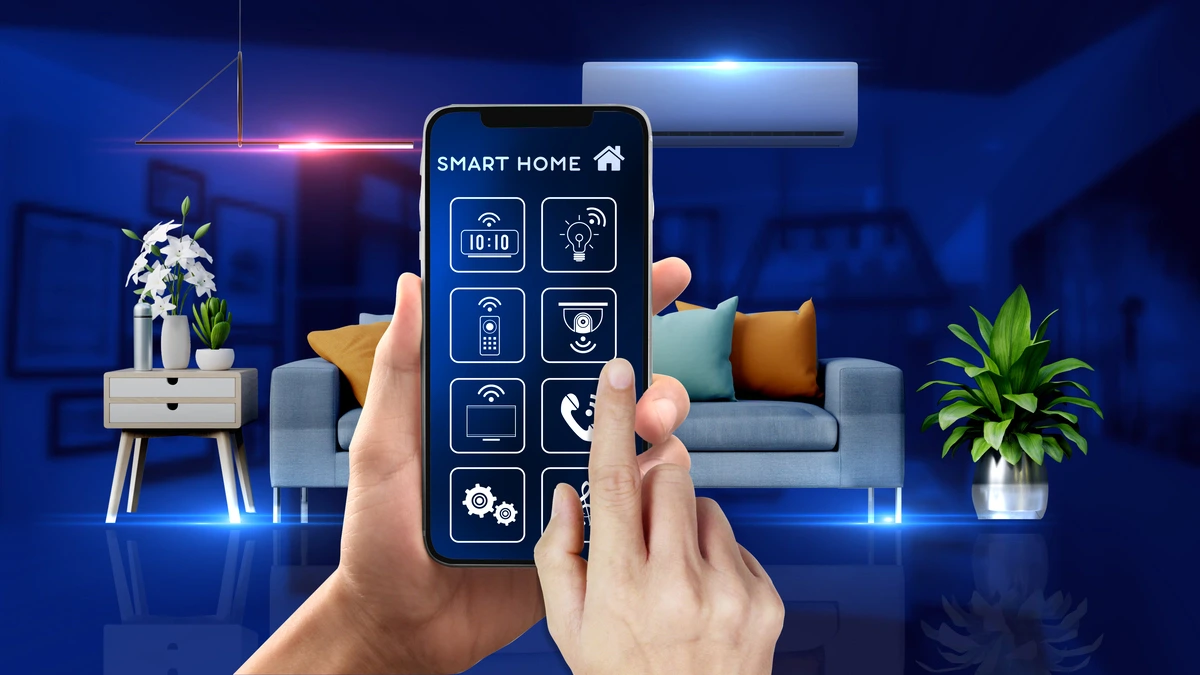
Introduction to Smart Homes
In its most basic form, a smart home is a house that has devices that can be operated from a telephone or computer. This technology makes it easy to connect different home electronics, building an ecosystem that can respond and, ideally, predict what will happen next. What used to be mostly for rich or tech-savvy people is now easier for more people to get because of improvements in technology and a growing market driven by buyer demand.
With sales going through the roof around the world and more and more home automation goods coming out every day, it’s clear that more and more people want to live in smart homes. But many people who might adopt aren’t sure if the benefits really are greater than the costs. Find out if getting a smart home is right for you by reading on.
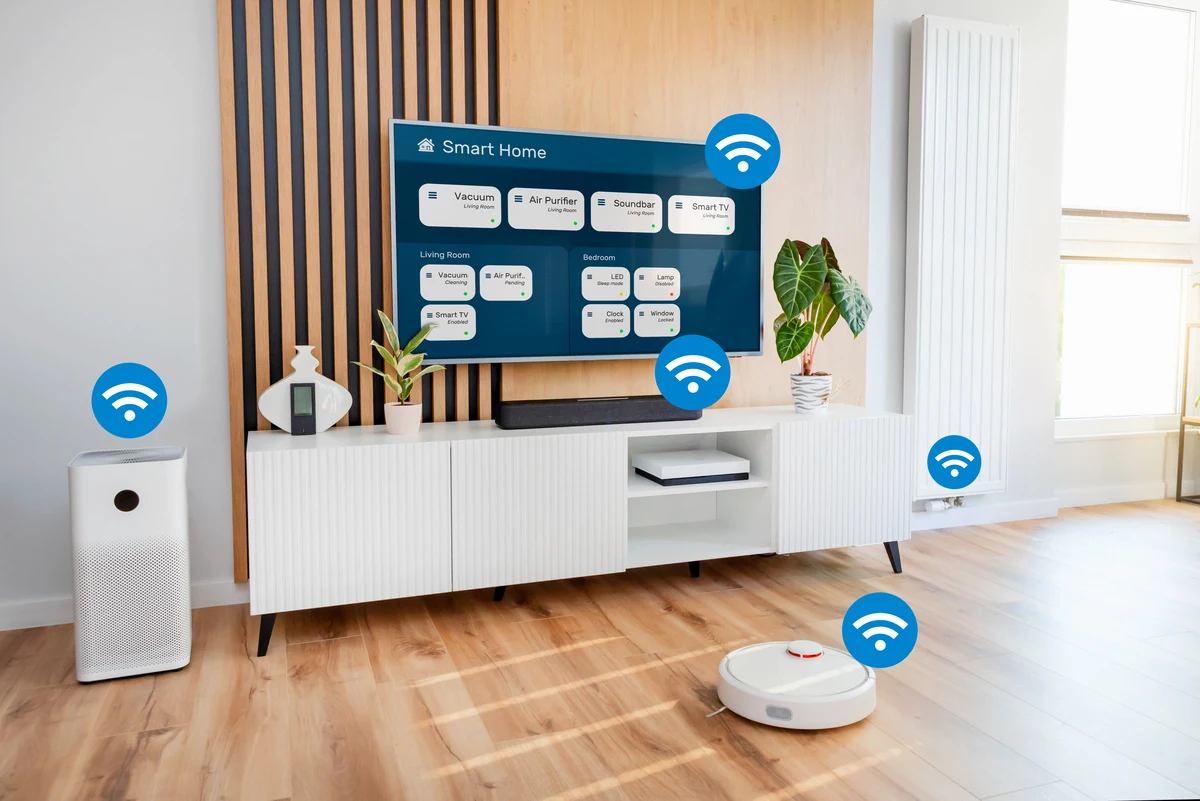
Pros of Smart Homes
Common Components and Price Points
Smart home technology is the best example of how easy modern life is. You can use your voice or a tap to automate or control simple things like setting the thermostat, turning off the lights, or even starting the coffee maker. You won’t have to worry about coming home to a dark, cold house again. You only need to set your choices, and when you get home, it will be ready for you.
Energy Efficiency
People who care about the environment are interested in smart technology because it can help them use less energy. Smart thermostats learn about your family’s habits and change the temperature based on those habits. This saves you money on heating and cooling costs. Smart lighting systems can also be set to turn on or off at certain times or by sensors, so lights are never left on when they’re not needed.
Enhanced Security Features
One of the best things about smart homes is that they offer peace of mind through advanced protection systems. With high-definition cameras that can be accessed from afar and smart doorbells that let you see and talk to visitors from anywhere, the security is advanced and reassuring. With an app, you can watch and control smart locks, which makes them more convenient and safe.
Increased Home Value
A well-integrated smart home can make your house much more appealing and increase its value. In a crowded market, features like a smart cooking appliance set or a whole-home audio system can help your home stand out. It’s a modern touch that appeals to the growing number of people who want to buy homes that are tech-savvy.

Cons of Smart Homes
Initial Setup Costs
The initial expense is one of the main things that keeps many people from doing it. Smart devices can be expensive, especially if you want to automate a lot of different parts of your home. This covers both the devices themselves and the fees for having a professional set them up and install them.
Privacy and Security Concerns
When it comes to privacy and data security, these issues become more important the more connected your home is. People have tried to hack into smart home devices, and you have a right to be worried about what companies might do with the data they collect. People who own homes need to be careful about what they put online and buy strong protection systems.
Compatibility Issues
Not all smart devices are the same, and it can be hard to make sure they all work well together. Most of the time, this means sticking to one environment, like Apple HomeKit or Amazon Alexa, so that everything works together. This may, however, reduce your choices and mean that you don’t always get the best device for your needs.
Dependency on Technology
Things can go wrong with technology, and when they do in a smart home, the effects can be worse. If something goes wrong with the system, you might not know what’s going on or your home could be at risk. There’s also a chance that your gadgets won’t get updated in the future, which would make the smart home ecosystem you’ve built useless.
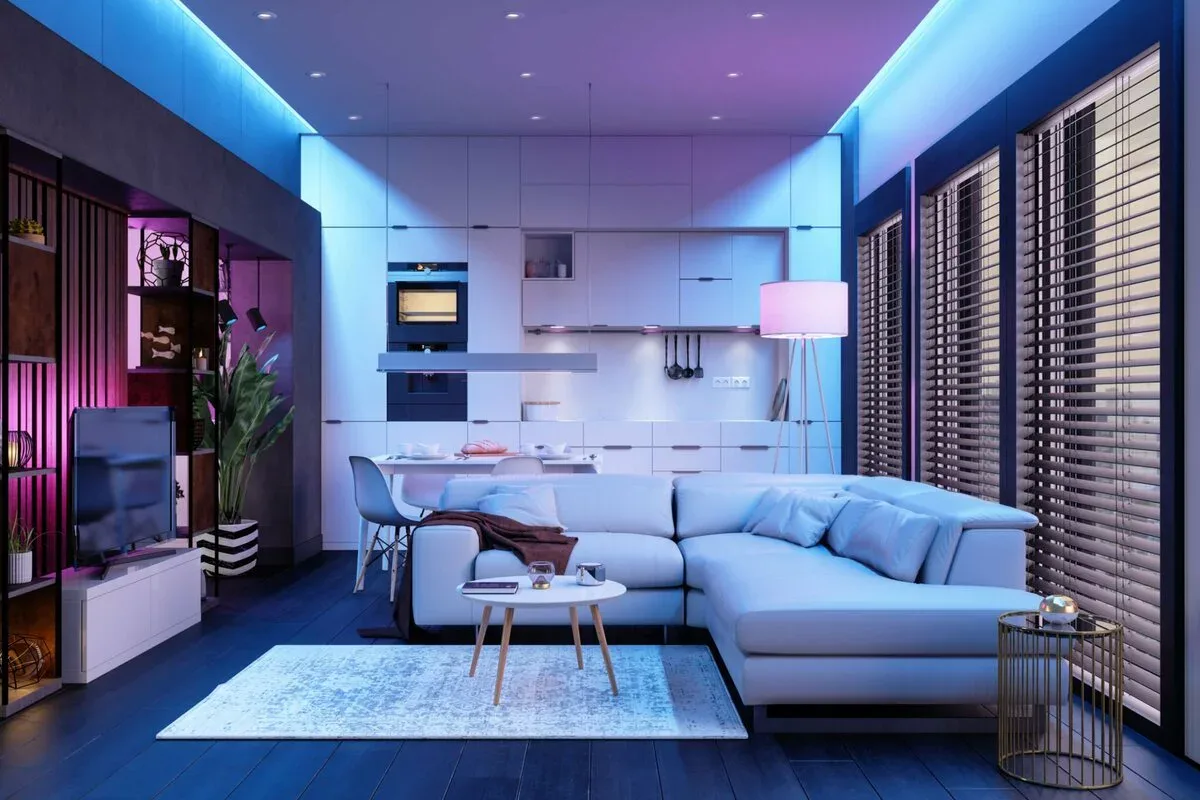
Tips for Smart Home Adoption
Research Before Investing
Before you make an investment, you need to know a lot about the smart home market. Compare features, read reviews, and think about how each gadget will fit into your daily life. Don’t just buy the newest tool because you want it; make sure it will really help you.
Prioritize Security Measures
When you’re making decisions about your smart home, security should come first. Buy devices from well-known companies that have a history of putting security first. Keep your devices and network protection up to date, and be careful about what apps and devices you give permission to do.
Consider Long-Term Cost Savings
Smart homes may seem expensive to set up at first, but they can save you money in the long run by using less energy and letting you handle the system from afar. Think about how much you’ll gain in time and pleasure as well as the money you’ll spend.
Test Compatibility with Existing Devices
If you already have smart devices, it’s important that they work with each other. Look for systems that will work with the ones you already have or the ones you like best. Making the switch to a smart home will be a lot less stressed if everything works together smoothly.
Smart home technology is a great way to combine comfort and new technology, but it does come with some problems. Making smart choices is important. When you compare the pros and cons of having a smart home, you can make a decision that makes your home life better instead of harder.
It will be well worth your time to think about your situation, whether you’re planning to buy something in the future or are ready to click “buy” on ease. The future house is calling, but the little things matter. Get ready for a smarter way of life that fits your needs perfectly.
